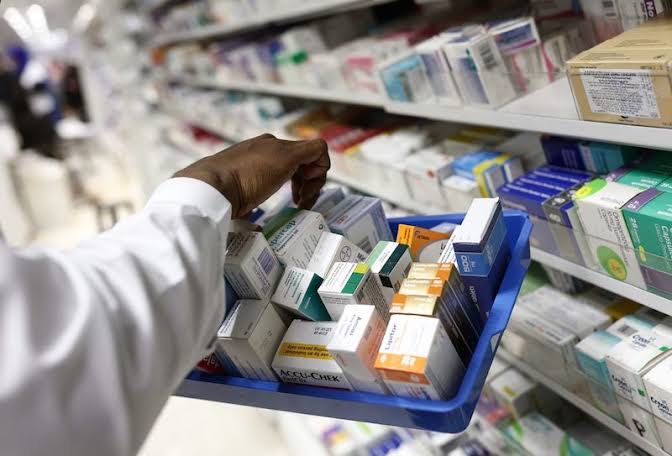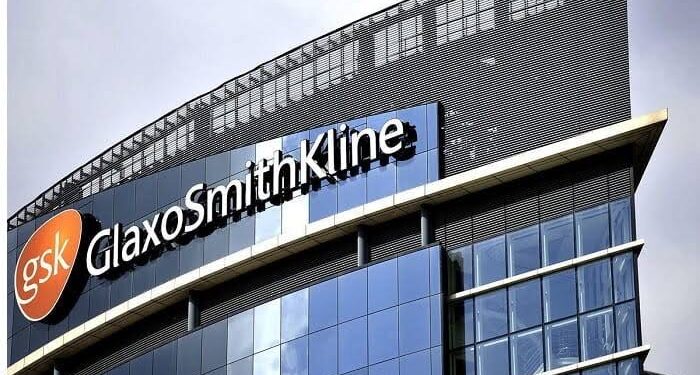A year since GlaxoSmithKline (GSK), a British pharmaceutical giant left Nigeria, the cost of antibiotics previously manufactured by the company has skyrocketed by 300%, a recent survey of pharmacies across Nigeria has revealed.
According to Journalists, market results showed the prices of GSK’s flagship products Augmentin 228mg and 475mg have increased by 307 percent and 328 percent, respectively, between August 2023, when the company withdrew from Nigeria, and August 2024.
According to the results, the prices of Augmentin 228mg and 475mg are now 12,000 and 18,000 naira respectively, up from 2,950 and 4,200 naira respectively in August 2023.
The price of GSK’s anti-asthma product, Seretide Inhaler, increased from N7,000 in the first quarter (Q1) of 2023 to N70,000 in November of the same year. Its current price is N51,300, a 632 percent increase from N7,000 in August 2023. The price of Amoxil 500mg has increased 3.5 times from N950 in the same period in 2013 to N3,400 in August 2024.
However, the price of Augmentin 625mg has slightly decreased from N14,000 in August 2023 to N13,400 in the corresponding period in 2024.
The price of Ventolin inhaler, another anti-asthma product, has also slightly decreased from N9,100 to N8,700 due to increased supply by pharmaceutical retailers across the country.
The across-the-board price increase covers only half of the economic hardship that GSK’s withdrawal will cause Nigerians, many of whom are already suffering from financial difficulties and low purchasing power.

Shortly after GSK announced its intention to withdraw from Nigeria and rely on third-party distribution, shortages emerged as suppliers and retailers stockpiled goods, causing prices to rise. In the first quarter of 2023, Augmentin 1g was sold for about N5,000; 625mg for N4,000; 475mg for N2,700-3,000, and 228mg for N2,950.
However, at the peak of panic buying and exorbitant prices in November 2023, the price of Augmentin 625mg increased by 525 percent and was sold for N25,000 in some pharmacies. The 475mg and 228mg brands were sold for N8,000 to N9,000. The 1g mark reached N4,000.
Meanwhile, Fulfillment Centers (FCs), large pharmaceutical chains that typically source products from third-party providers, have kept prices relatively constant from the first quarter of 2023. Reports show that the decline in products such as Augmentin 625 mg and Ventolin inhaler last year was due to increased supply in the market, easing the shortage.
“Ventolin inhaler was and some Augmentin products were scarce and sourced by FC late last year. But they are now supplied by the distributors, hence the reduction in selling prices,” a source who runs a major pharmacy told Journalists.
Samuel Okwuada, CEO and co-founder of Remedial Health warned that supply will increase along with parallel imports and counterfeit products may affect the supply mix as bad actors will also exploit the phase-out.
“By the time we started having the effects of the exit and inflation issues as well, the price of the antibiotics went up to as high as N45,000. It was difficult for people to be able to buy. Almost within a month, we started seeing that same product in the market being sold for N10,000 to N15,000. It wasn’t that this manufacturer that had exited the market decided to return or decided to crash their price. It was pretty much a counterfeit. So, obviously, for people who are still looking for this medicine, it is cheaper. But the problem is it may not be the genuine stuff,” Okwuada, who runs a health tech company that is transforming the pharmaceutical supply chain, told Journalists.
Nigeria’s economic challenges, compounded by inflationary pressures and exchange rate fluctuations, have threatened the pharmaceutical industry over the past year.
GSK’s withdrawal severely crippled the company’s operations following years of declining profit margins and insurmountable difficulties in accessing foreign currency through official channels.
For many Nigerians struggling with high drug prices, preferring cheaper branded and generic versions of these products has become a coping mechanism.
Analysts had expected that the withdrawal of multinationals, including Sanofi, would open up opportunities for established Nigerian companies to develop and expand market share. In its 2024 outlook, Meristem predicted that these exits will provide opportunities for incumbents to gain further market share, and also expects prices of pharmaceuticals and consumer health products to rise in 2024.
The company expects to see improved financial performance at the industry level due to higher sales volumes and planned price adjustments in line with the current macroeconomic situation.

However, it noted that expected increases in transportation and energy costs, as well as continued high inflation, will lead to a corresponding increase in production and operating expenses.
To date, MeCure Industries is the only local company attempting to locally manufacture amoxicillin-clavulanate tablets, a potential alternative to GSK’s antibiotic Augmentin 625 mg.
Fidson Healthcare Plc was already engaged in contract manufacturing of Panadol, a type of paracetamol, before GSK’s exit. According to analysts who spoke to Journalists, Nigeria is currently challenged with a high exchange rate, high interest rates, and a tough business environment, which are discouraging investors.
Patrick Ajah, CEO of May & Baker, told Journalists also that fixing the exchange rate is the most important solution to solve these problems.
He also noted that the government needs to be conscious of supporting pharmaceutical companies through intervention funds and other means.
“There are companies with the ability to make things like ampicillin and cloxacillin, but they are small and lack the support required. Many of them have closed down or paused operations. It is important to encourage companies to come up,” Ajah said.
“My company was trying to build a facility last year. We had done the market assessment and found a location to build. You can’t build such a facility on the same site where you make other things to prevent contamination. By the time we were done with analysis, the devaluation of the naira stopped us. The amount I needed had tripled, we couldn’t start.
“The major thing that the government needs to do is to fix the issue of exchange rate. That is the greatest problem leading to the prices that we are seeing. All our imports are in dollars. There is no way you can catch up from an exchange rate that was N460 last year and is now over N1500. This is one major reason why multinationals are leaving. It is not the fuel subsidy removal.
“All the money multinationals were bringing had to go through the banking system at the official rate. You brought in money to come and build a facility at the exchange rate of N360 and now you are going to remit at over N1,500 and can’t even find the dollar. Many companies won’t cope. Fixing the exchange rate is one single thing that will immediately reset our issues,”” Ajah noted.

































